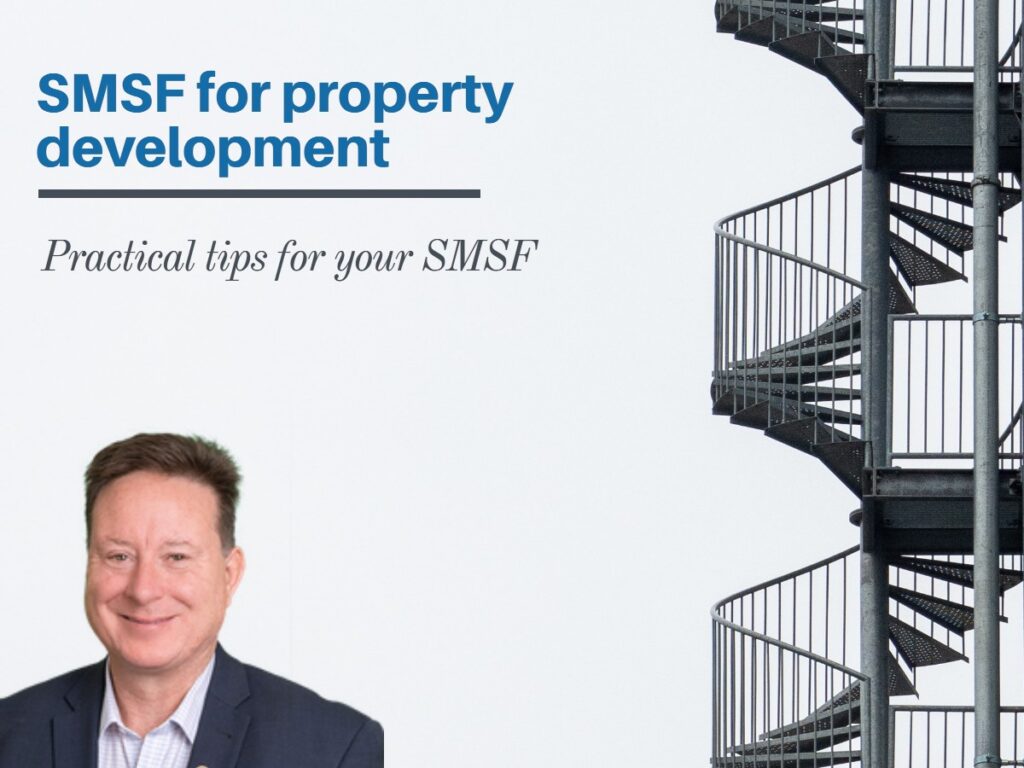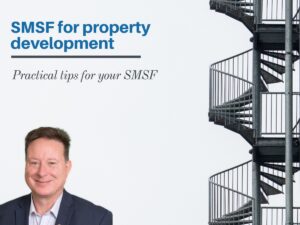SMSF for Property development undertaken by an SMSF can be undertaken. We however strongly recommend seeking advice.
ATO has issued a warning about relates to the use of SMSFs to invest in property development in a manner that inflates the profits earned by the SMFSs when compared to the capital the SMSF commits to the venture.

Can my SMSF invest in a property development?
An SMSF can as part of its investment strategy invest in property ventures. This is provided the investments are entered into on a genuine arm’s-length basis. As trustees, you should document your strategy including a risk analysis of the project.
If investments are entered into with related parties, even though on an arm’s-length basis, care still needs to be taken. Keep reading to understand what you should do!
A scheme that was identified by the ATO, an arm’s length third party contracts with a company related to SMSFs to build several units or apartments ie a property development. Those who control the SMSFs provide services to the company (which they control) and charge low fees to that company. Also, loan capital is provided to the development company at a low or no interest rate.
Inflated profits warning signs
In this scheme, the development company earns inflated profits. These profits (after the company pays tax on the profits) are then paid as fully franked dividends up a chain of companies to the SMSFs.
The development company in this case will have paid tax at a rate of 30% on the profits earned. When the profits reach the SMSF as fully franked dividends, the tax paid by the company is refunded to the extent of the SMSF only paying 15% of the profits. Hence reduced tax liability
The ATO would state that this means the SMSF contravenes the superannuation and tax laws. Furthermore, this is because the SMSF is earning “non-arms length income” (NALI). NALI earned by a superannuation fund is taxed at 45%. The SMSF may also be treated as a non-complying fund because it may have breached the “sole purpose” test. This means it will have lost all of its tax-concessional status.
Tips worth noting before using your SMSF for property development:
Financing and Borrowing
• Limited Recourse Borrowing Arrangements (LRBA): While SMSFs can borrow to invest under LRBAs, there are strict rules about borrowing, especially when it comes to property development.
• Personal Guarantees: Trustees should be cautious about providing personal guarantees for loans, as this can risk personal assets.
Development and Construction
Building the development and Contractor Selection: Engaging contractors for property development must be done at arm’s length,. This means competitive pricing and no preferential treatment to related parties. The building also needs good Project Management: Trustees need to actively manage the project or engage professional project managers to ensure the development is completed on time and within budget.
Tax Considerations and Implications for SMSF Property
• Capital Gains Tax (CGT): SMSFs can benefit from reduced CGT rates on investment properties held for more than 12 months.
• Income Tax: Rental income and any profits from the sale of developed property are subject to income tax at concessional rates within the SMSF.
Exit Strategy
While an exit strategy requires a sale of property Liquidity and Exit is important considerations. Before embarking on a property development venture, consider how the SMSF will exit the investment. Property can be difficult to sell quickly, which may impact the fund’s liquidity. Especially if the member is of old age or needs to fund a pension
Gartly Advisory specializes in helping both clients establish and operate an SMSF and also those who undertake property development.




